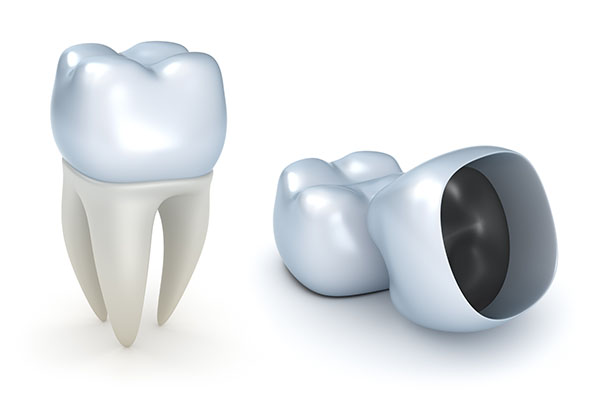Maintenance Tips to Help Dental Crowns Last

Dental crowns are durable and effective for restoring damaged or weakened teeth. They improve the tooth's structure and function while also enhancing your smile's appearance. However, proper maintenance can extend their lifespan and ensure long-term oral health. With the right care, these restorations can last several years, providing a reliable and aesthetically pleasing restoration.
Maintain good oral hygiene habits
A consistent oral hygiene routine is crucial for preserving the integrity of dental crowns. Brushing at least twice daily with fluoride toothpaste helps remove plaque and bacteria that could compromise the underlying tooth structure. Flossing at least once a day is equally important, as it prevents food particles and plaque buildup around the crown and along the gum line. Additionally, using an antibacterial mouthwash can reduce the risk of gum disease and decay, which can impact dental crowns' longevity.
Use the right dental products
In order to make dental crowns last longer, patients must choose the right dental products when maintaining their oral hygiene routine. For example, use a soft-bristled toothbrush and a non-abrasive to keep the crown clean and avoid scratching. Also, rinse with an alcohol-free mouthwash, as alcohol-based rinses can weaken the dental glue that holds the crown in place.
Avoid chewing hard objects
Dental crowns can withstand normal biting and chewing forces. However, excessive pressure can lead to damage. Chewing hard objects like ice, pens, and candies can cause fractures or dislodgment. Patients should also avoid using their teeth to open packages or biting their fingernails. Further, to protect dental crowns, patients should be mindful of their overall eating habits and avoid placing unnecessary stress on the restoration.
Wear a night guard if necessary
Individuals who grind or clench their teeth, a condition known as bruxism, can shorten the lifespan of dental crowns. Bruxism exerts excessive force on teeth and restorations, leading to fractures or wear and tear over time. Fortunately, a night guard can protect natural teeth and dental crowns from damage. A dentist can provide a custom-designed night guard to ensure comfort and effectiveness.
Schedule regular dental checkups
Regular dental checkups are essential for taking care of dental crowns. Dentists can spot early signs of wear, decay, or gum disease that could harm the crown and the patient's overall health. Professional cleanings help remove plaque and tartar, keeping both the crown and surrounding teeth healthy. Regular exams allow quick action if any problems arise, which helps avoid bigger dental issues later on.
Be cautious with sticky and sugary foods
While dental crowns are strong, sticky and sugary foods can pose risks. Sticky foods such as caramel and chewing gum may pull on the crown, potentially loosening it. Sugary foods contribute to plaque formation, increasing the risk of decay around the crown margins. A balanced diet with minimal consumption of these foods helps maintain oral health and prolong the life of dental crowns.
Keep the gums healthy
Healthy gums are essential for the longevity of dental crowns. Gum disease can lead to recession, exposing the edges of the crown and making the underlying tooth vulnerable to decay. Patients should watch for the following symptoms of potential gum issues with a dental crown:
- Redness around the crown
- An exposed part of the tooth root
- Inflammation and discomfort
- Bleeding gums
- Increased sensitivity
With proper brushing and flossing techniques, combined with regular dental visits, the patient can support their overall gum health while ensuring the long-term stability of dental crowns.
Avoid excessive alcohol and tobacco use
Alcohol consumption and tobacco use can negatively affect oral health and the durability of dental restorations. Alcohol can weaken the bonding agents used to secure dental crowns. Meanwhile, tobacco increases the risk of gum disease and further tooth decay. It can also stain the surface of the restoration. Reducing or eliminating these habits contributes to overall oral health and helps maintain the integrity of dental crowns.
Pay attention to any sudden changes
If the dental crown begins to feel different, the patient should not ignore it. A loose or uncomfortable crown may indicate underlying problems such as tooth decay, gum recession, or bite issues. Feelings of sensitivity or pain around the crowned tooth may also be a warning sign. Schedule an appointment with the dentist quickly to fix any problems before they worsen, ensuring the crown stays secure and works effectively.
Make your dental crown last as long as possible
Dental crowns are a long-term solution for restoring damaged teeth. However, their durability depends on proper maintenance. Awareness of potential risks and proactive care help ensure that your dental crown remains in good condition for as long as possible, contributing to overall oral health and function. Call our Charlotte office to learn more tips and tricks or to schedule your next appointment.
Request an appointment here: https://www.charlottemidtowndentistry.com or call Midtown General & Cosmetic Dentistry at (704) 307-4525 for an appointment in our Charlotte office.
Check out what others are saying about our dental services on Yelp: Dental Crowns and Dental Bridges in Charlotte, NC.
Related Posts
An implant crown is one of the most popular solutions for replacing a missing tooth, as it restores optimal function and aesthetics. Unlike traditional crowns that rely on existing teeth for support, an implant crown is securely attached to a dental implant, which acts as an artificial tooth root. While this tooth replacement is an…
In some form, dental crowns have been a part of dentistry for centuries. This treatment is an important restoration method for people who have severe tooth decay. Cosmetic dentistry also uses crowns to improve patients’ smiles. If you are unhappy with the appearance of your teeth, a crown could be the right solution. Your dentist…
Many people see tooth replacement as something they can postpone without serious issues. However, putting off tooth replacement can lead to more problems than leaving a gap in your smile. Missing teeth can cause various oral and health problems, creating financial, functional, and emotional stress that you can otherwise avoid with immediate treatment.When a tooth…
You can do research on dental implants on your own, but getting the facts from your dentist can give you more inside information. These restorations can replace dental roots and crowns. Each one can improve your smile and strengthen your bite. The following are facts that you can get from your general dentist when it…


